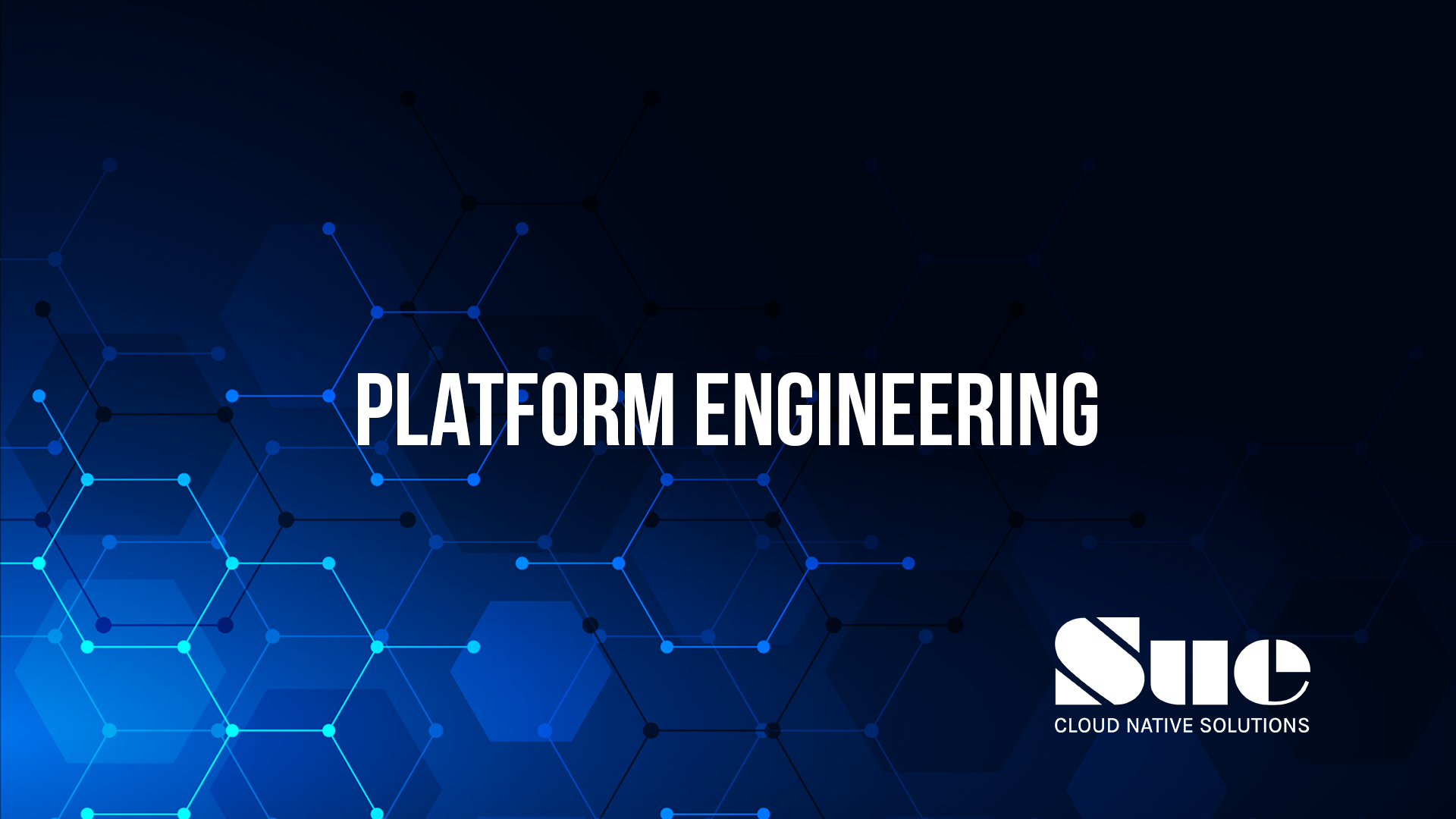Platform Engineering:
the Future of DevOps?
Platform engineering is a relatively new way of organising IT teams. Its promises are compelling: increased efficiency and productivity for teams, standardisation of an organisation’s tools and processes and cost-cutting. On the other hand, many organisations have adopted the DevOps way of working, which has been around for a while longer. In this post, we will explore the relation between platform engineering and DevOps and their impact on organisations’ IT operations. In particular, we will examine what influence platform engineering could have on the DevOps way of working.
A Short History Lesson
Before we discuss the current trends of platform engineering, let’s return to the nineties and early zeroes to look at the way IT teams were organised at that time.
At that time, teams were rather siloed: one team was responsible for developing an application, while another team was responsible for running the application in production. When the development team had released a new version of their application, they would give it to the operations team. While this seems like a natural division of labour, it caused a lot of friction between the different teams. Namely, the developers would only know whether their app works well in production after the operations team deployed it, which often took a long time. Worse yet, when something did go wrong during deployment, the operations team would give the program back to the development team to fix the problem. It can be easily seen that these practices induce bottlenecks for deploying an application and slow down development in the process.
The industry struggled with this situation, but has since moved to a new way of working: DevOps. DevOps can be explained in a multitude of ways, but is in essence a set of principles that aims to streamline the development and delivery of software. Instead of developers “throwing their application over the fence”, they themselves are responsible for the deployment of their application; this is often referred to as “You build it, you run it.” In order to facilitate this change of culture however, it is necessary to automate many processes. Infrastructure as Code (IaC), Continuous Integration (CI) and Continuous Delivery (CD) are examples of tools used to realise this automation. The cloud has also helped a great deal providing scalable, elastic and automatable infrastructure. All in all, the DevOps philosophy has enabled organisations to quickly and reliably deploy applications.
However effective the movement to DevOps has been, this push has introduced its own set of problems. Namely, development teams are now burdened with the responsibility of deploying their own applications. Worse yet, developers need knowledge of many new technologies: cloud platforms (AWS, Azure, GCP, etc.), Infrastructure as Code tools (Terraform, Ansible, CloudFormation, etc.) and pipelines (Azure and GitLab pipelines). This is a lot to ask of people who just want to develop an application and put it in production. It would be best to have some kind of middleground between having all IT administration work outside or inside a development team.
What is Platform Engineering?
With platform engineering, infrastructure administration work is moved to a central team in an organisation. This takes a huge weight off the shoulder of development teams. Instead of managing the complex task of managing IT infrastructure, they can better focus on creating value themselves.
Note that platform engineering does not move all DevOps-related tasks outside teams. Platform engineering distinguishes between the administration or usage of infrastructure. Administrative tasks, like managing a Kubernetes cluster or setting up Azure pipelines, are all managed by the platform engineering team. However, teams can still use this infrastructure themselves how they see fit; for example, by using Azure pipelines to deploy their application on the Kubernetes cluster. This allows teams to utilise modern infrastructure optimally, without the cognitive load. Platform engineering is therefore a good example of division of labour, which is common practice in many sectors.
How will Platform Engineering Influence DevOps?
Given the benefits that platform engineering provides, will we see organisations moving away from the DevOps way of working completely? The short answer is no. Rather, these two ideas will live alongside each other, complementing each other. There are several reasons for this:
- While part of the responsibilities of DevOps engineers is moved to a central point in an organisation, not all of it is. Namely, teams can still use the infrastructure that the platform engineering team provides for their own DevOps tasks, like Kubernetes deployments or running pipelines.
- DevOps is primarily a mindset and platform engineering still upholds this mindset. This mindset gave birth to the practices around DevOps we see today, aiming to make development teams more productive and speed up deployment. We now see that some of these practices are not quite as effective. Platform engineering picks up where current DevOps practices fall short, but certainly not at the expense of the DevOps mindset.
Conclusion
We have seen how the DevOps revolution has enabled development teams to be more productive and deploy their applications faster. However, people in these teams now need knowledge of many new technologies resulting in increased cognitive load and extra work. Platform engineering relieves team members from the administrative tasks of DevOps, while still allowing them to perform DevOps tasks specific to their applications. While platform engineering upholds the same DevOps mindset, it improves upon current DevOps practices. We can conclude that platform engineering is the next step for organisations aiming to improve the productivity of their development teams.
How SUE can help you
As the field of platform engineering continues to evolve, it offers a promising path for organisations to streamline their IT operations and align more closely with business objectives. With over 26 years of experience in development and DevOps operations, SUE has been at the forefront of this evolution. We have assisted organisations in every aspect of the development lifecycle, from design to operation. Our expertise has been instrumental in building customised platforms for a diverse range of clients, each with their unique requirements.
The culmination of our experience and expertise has led to the creation of our groundbreaking Multistax platform. This platform embodies our deep understanding and know-how, offering a tailored solution that addresses the specific challenges and needs of modern IT operations. If you’re ready to explore the potential of platform engineering and how it can transform your organisation, we invite you to connect with us and discover how our expertise can pave the way for a more efficient, productive, and innovative future in software development.

